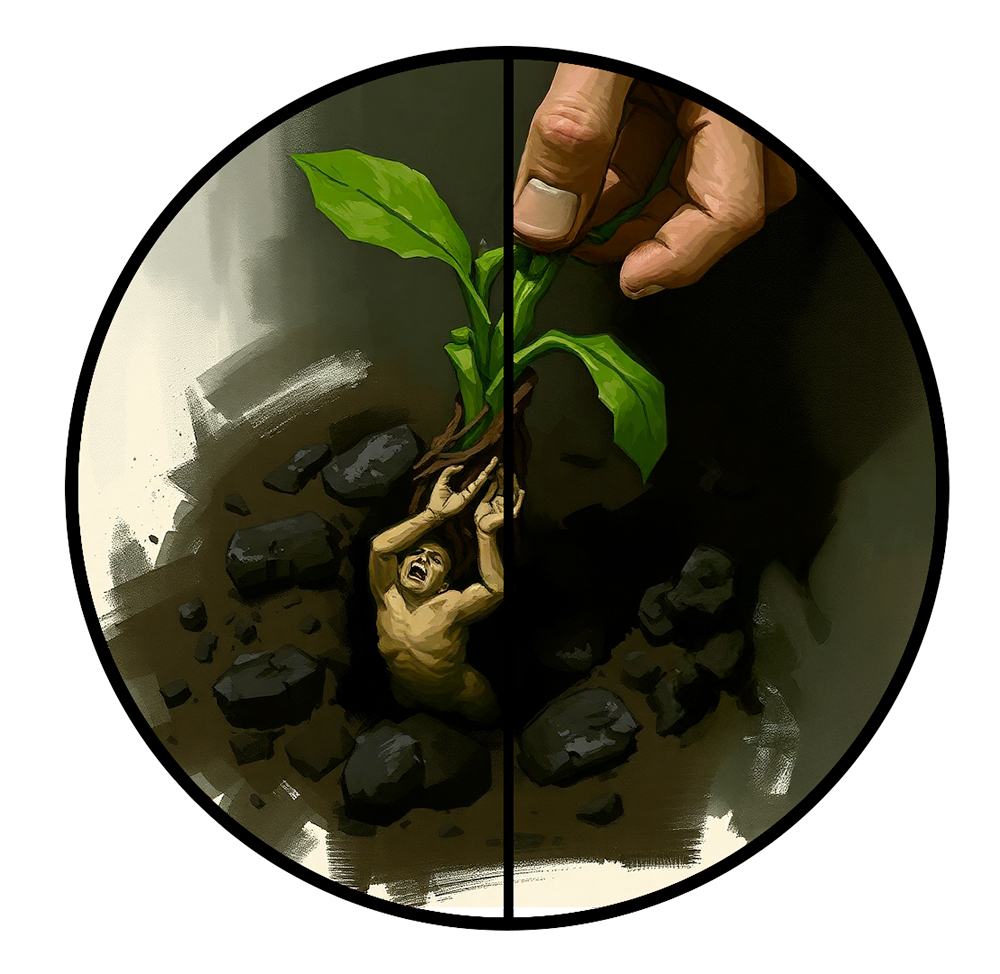 Genesis 30:14
Genesis 30:14

And Behold-Builder is walking in the days of wheats-harvest, and is finding mandrakes968 in the field, and is causing to come in אֶת-them in toward Weary, his mother, and Ewe is saying toward Weary, `Give now to-myself, from the mandrakes of your builder.`
Bring them In to Her
And Behold a Son ("Reuben") is walking within the days of wheats harvest, and he is finding mandrakes in the Field, and he is causing to come in their eternal selves toward Weary, the mother of himself, and Ewe is speaking toward Weary, "Give, pray, to myself, from the mandrakes of the son of yourself!
(dudai) mandrakes, a plant believed to stimulate sexual desire and promote fertility. In Genesis 30:14-16, mandrakes are sought after by Rachel for their supposed reproductive powers, reflecting the ancient beliefs in their aphrodisiacal properties. The symbolism is further echoed in Song of Solomon 7:14, where the plant's scent is associated with attraction by giving of a certain "aroma" or "fragrance".....
And Reuben will go in the day of the harvest of wheat, and will find apples of mandrakes in the field, and he will bring them to Leah his mother: and Rachel will say to Leah, Give now to me of thy son's apples of mandrakes.
And in the days of wheat harvest Reuben went out and found love-apples in the field. And he brought them to his mother Leah. And Rachel said to Leah, Please give to me from the love-apples of your son.
In the days of wheat harvest Reuben went and found mandrakes in the field and brought them to his mother Leah. Then Rachel said to Leah, “Please give me some of your son’s mandrakes.”
And Reuben went in the day of barley harvest, and found apples of mandrakes in the field, and brought them to his mother Leah; and Rachel said to Leah her sister, Give me of thy son’s mandrakes.
Footnotes
| 968 | Strong’s #1736, דּוּדַי duday. This comes from the word meaning beloved and uncle and is used throughout the Song of Solomon. The Hebrew root means to boil. The mandrake is a unique plant in that its root has the form of a human body. They are described in Songs 7:13 as having a fragrance. The mandrake root is a hallucinogenic and hypnotic narcotic. What is this mysterious relationship between a mandrake plant, a beloved, and an uncle? Take note of the time that these mandrakes were gathered. |